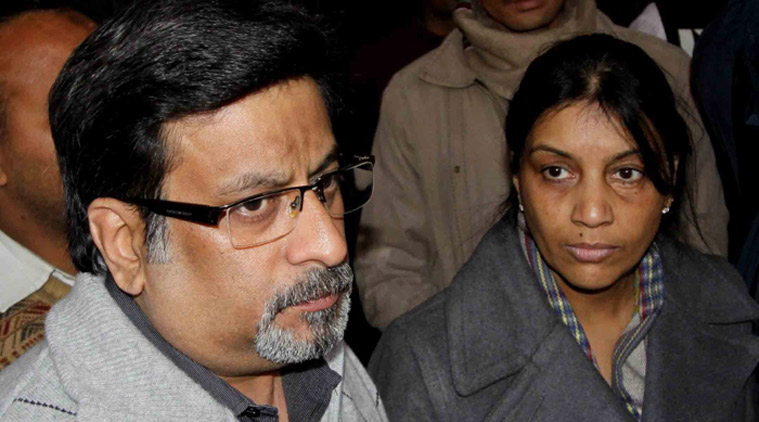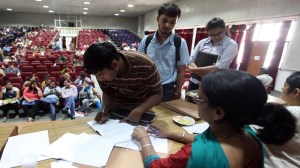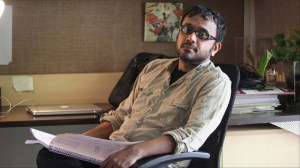- India
- International
Aarushi Talwar murder: A tragedy of errors
A new account of the Aarushi murder case raises questions over the investigation
I should start by saying, “I accuse”, but then I am no Zola and the Talwars no Dreyfus. Yet, the Aarushi case has the overtones of the Dreyfus affair in that it is perhaps the most glaring example of miscarriage of justice that India has known in recent years. And like in the Dreyfus affair, the media has played a significant role in influencing public opinion. The polarising case has been hotly debated in living rooms across Delhi just the way the Dreyfus affair was across France of the late 19th and early 20th century. Unlike the French scandal, the Aarushi case does not appear to be politically motivated but it definitely casts a long shadow on the dubious ways of working of some of India’s most important institutions.
Like many in India, I was transfixed by the news of the double murder of 14-year old Aarushi Talwar and the Talwar’s live-in household help, Hemraj, in Noida. I watched in disbelief, and later incredulous horror, at the curious twists and turns the case took until it ended in the conviction of the dentist couple by a lower court and their sentencing to life imprisonment.
I took a special interest in the case because soft-spoken, reserved Nupur Talwar, who worked a lot with children, was also my dentist. At the Khan Market dental clinic that I went to, she was recommended to me as having the gentlest hand of all, as she simply could not bear to cause a child any pain.
[related-post]
Though living in France, I followed the investigation and the trial closely. At times the whole exercise seemed unbelievably surreal: a tragedy of errors with its supporting cast of bumbling, inept officials, sound-byte hungry media with a propensity to sensational headlines and a public that was convinced of Nupur’s guilt just because she did not break down and cry on national TV. I waited in vain for the evidence against the Talwars to be produced. Through the long months of trial not a shred of credible evidence against them emerged.

And this is what Avirook Sen demonstrates in his book, Aarushi, published by Penguin India, i.e. the case against the Talwars is actually a non-case with huge gaps in the circumstantial evidence. It is a painstakingly researched, extremely well written account of the investigation into the double murder and the trial of Aarushi’s parents. Sen has the reader hanging onto every word of his, reluctant to put down the book for even a second, in what is truly a remarkable feat for a book whose ending is widely known.
Most readers are already familiar with the UP police’s outright incompetence in this affair: their neglect in sealing off the crime scene, the botched collection of evidence, their late discovery of Hemraj’s body etc. What many don’t know or perhaps take as par for the course, are the CBI’s investigatory tactics that include intimidation, tutored testimonies, doctored documents and tampered evidence. Their honour-killing theory does not stand up to scrutiny either, based as it is, on the premise that Hemraj was killed in Aarushi’s room when not a single trace of his blood was found there. What also boggles the mind is the way they blatantly ignored the promising leads that emerged from the narcoanalysis tests of the three servants in which they placed themselves at the scene of the crime on that fateful night. Instead, the CBI shifted the burden of proof onto the Talwars by suggesting, with the most simplistic logic, that in an apartment of four people with no forced entry, if two people were dead, then the other two must have done it.
Every Indian needs to read Sen’s book with an open mind to gauge for himself/herself the enormity of the injustice done to the Talwars. And every Indian, even one who is not particularly interested in the Aarushi case, needs to read Sen’s book as it is also an incisive commentary into the appalling ethics and methods of working of some of India’s “experts” and leading institutions. The sections relating to the post-mortem doctors and forensic expert could even be comical in the right context. The media and the judiciary certainly do not emerge unscathed from Sen’s recounting either. What hope was there for justice for the Talwars when the judgement was written before the Defence had had the opportunity to present its closing arguments?
Avirook Sen’s book has brought the Talwars back into the spotlight. It would be a second injustice towards the Talwars if, in spite of what the book exposes, they continue to be behind bars. Sen has provided the catalyst; it is now up to public opinion and the media to carry the “Free the Talwars” baton forward. I believe the media owes it to the Talwars to make amends for its less than praiseworthy (apart from some notable exceptions) role in this whole affair, by carrying out a sustained campaign for the release of the Talwars. In the Jessica Lal case, the media campaign culminated in justice for the victim. In this case too, a media campaign could serve to highlight a severe injustice and hopefully undo it.
The CBI that hallowed institution that Indians have so much faith in to conduct a thorough investigation and nail the guilty, needs to conduct an impartial internal inquiry into its handling of this particular case. It might be an unusual step but would serve to restore somewhat the public’s faith in this body. Depending on the outcome of the inquiry, the prosecution could potentially withdraw its opposition to the Talwars’ appeal.
However, if the Talwars continue to be incarcerated pending the hearing of their appeal in due course by the Allahabad High Court – and this is likely to take several years – it would be a case of justice delayed. Maybe the honourable Supreme Court will take suo motu cognizance of Sen’s book and the fact that the judgment was being written even before the Defence had the opportunity to present all its closing arguments, and take corrective action.
With every additional day that the Talwars languish in jail for a crime they did not commit, the system and we who unquestioningly support the system are guilty of perpetuating a glaring injustice. Justice for Aarushi and Hemraj cannot be delivered if the innocent are jailed and the guilty go scot-free.
by Radha Kapoor-Sharma
Kapoor-Sharma is a Paris-based freelance writer
EXPRESS OPINION
More Explained
Apr 24: Latest News
- 01
- 02
- 03
- 04
- 05










































